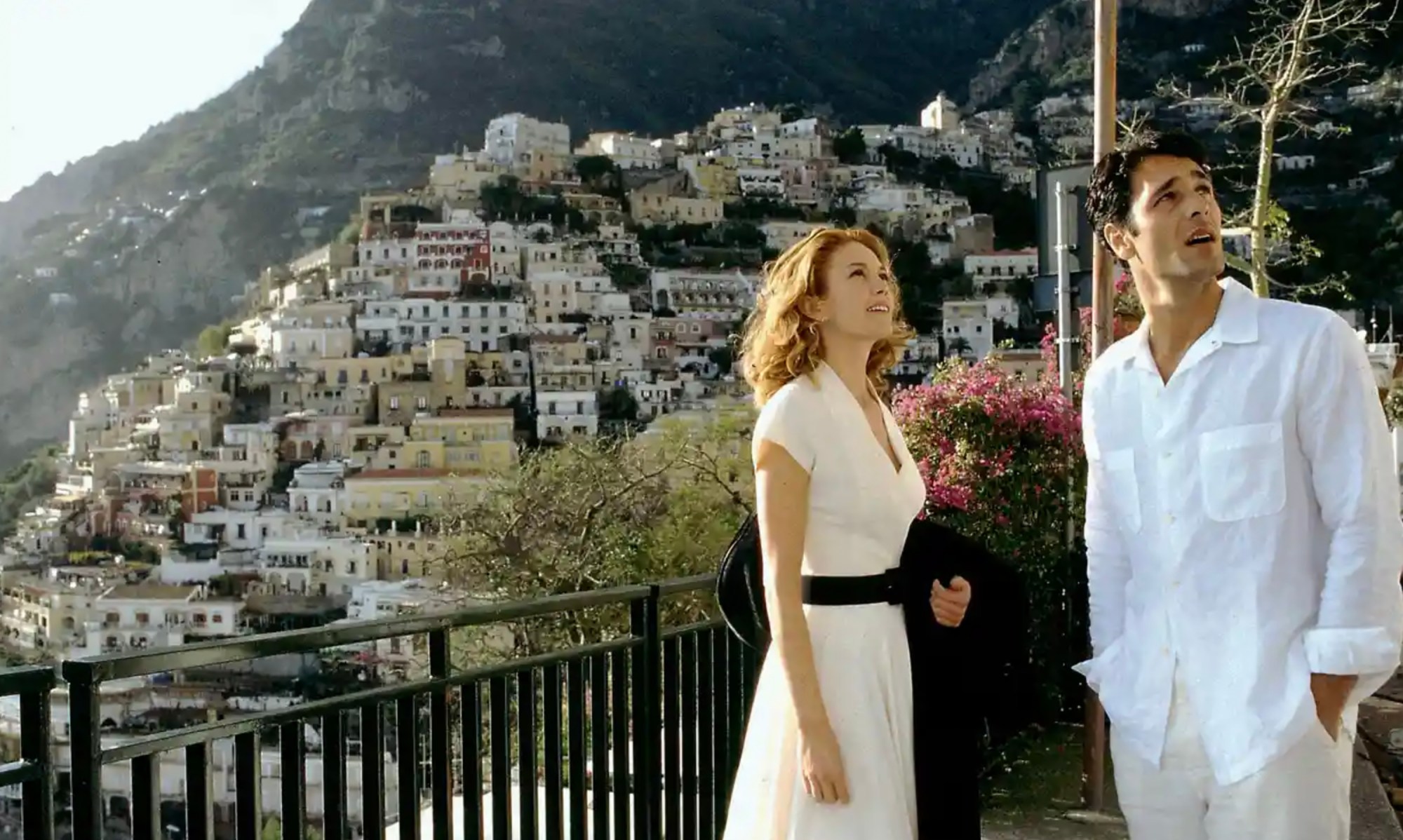
- Film
“Under The Tuscan Sun” by Audrey Wells (2003)
There are films that are a flash in the pan, and then there are those who live on forever. One of them is a lovely movie from 2003 that still warms our hearts whenever we come across it. Under the Tuscan Sun is a ‘remote pauser’, a film that stops any even remotely sentimental viewer from switching channels.
Who hasn’t dreamed of balmy nights in the rolling hills of Tuscany, sipping Brunello di Montalcino wine while gazing at faded 14th-century frescos?
We can blame it all on Frances Mayes, the author of the memoir “Under the Tuscan Sun,” in which she writes of her own experience restoring an abandoned villa called Bramasole in the Tuscan countryside. The book, published in 1996, remained on the Times best-seller list for two and a half years and, in 2003 it was adapted for the screen and directed by Audrey Wells.
Mayes, by the way, has not stopped penning Tuscan-themed books: “Bella Tuscany,” “Bringing Tuscany Home,” “Every Day in Tuscany,” “The Tuscan Sun Cookbook”—and has made a business out of creating her own line of Tuscan wines, olive oils and furniture. In short, she is responsible for the rise in tourism in the area, especially from Americans who will hopefully never again mispronounce “bruschetta,” who all of a sudden take a liking to “fagioli” – doesn’t that sound so much better in Italian than the ordinary white beans they are? – and even finding Tuscany on a map, since they have been there.
But back to the film which was shot mainly in Cortona. Frances, based on the author is played by Diane Lane, portraying a San Francisco writer whose seemingly perfect marriage has fallen apart. Shattered after the divorce from her cheating husband, her best friend Patti (Sandra Oh), who is expecting a baby, and her girlfriend (Kate Walsh) decide that because of the pregnancy, they should not travel and convince Frances to go. It’s a gay tour, and Frances feels a bit like the odd woman out. While stopping in a small town she sees a notice about a villa for sale. Back on the tour bus, that is forced to stop because of a herd of sheep blocking the road, Frances realizes that they are right in front of the very villa which she believes is a sign. Signs are a big thing in this movie. On a whim, she purchases the dilapidated house and begins restoring it.
After a period of loneliness in this foreign country where she knows no one and cannot speak the language, a series of interesting characters and lovely souls enter her life: a crew of Polish immigrants who help her renovate the house, locals, neighbors, the realtor who sold her the house, and the eccentric British actress pretending to be Anita Ekberg in La dolce vita in a scene that serves as a homage to Federico Fellini. And then, of course, there is the love interest, a seemingly romantic ‘Italiano’, played by then-newcomer Raoul Bova. Yes, we all swooned over him at least as much as Diane/Frances.
In an interview with the HFPA at the time, Diane Lane (who got a Golden Globes nomination for her performance in the Best Actress-Motion Picture- Musical/Comedy) acknowledged that the main character of the film is the location: “The star of this movie is definitely Tuscany. Well, and Rome and the coast. Very romantic. You can’t really have one be totally separated from the other, I think. It’s the bosom of romanticism, historically or not. It’s Italy, and I always thought it was the most romantic language […] and it was the most romantic place I’ve ever been for that length of time.” When she got back after shooting, she suffered from Italy withdrawal: “I missed the Italians. I missed the way that they got together over meals. I liked their priorities. In comparison, Americans are workaholics, we’re just always working, always on our cell phones. We eat in fast food restaurants. I love how people have said to me, how did you not gain weight in Italy, and I said well because Americans eat like Packman. In Italy, they get together and they have these wonderful three-hour minimum gatherings and all the wonderful ingredients: great arguments and discussions about politics and religion and everything in their culture, very passionate and very involved and you feel very connected over the food.”
In this, Under the Tuscan Sun is much more than a romantic dramedy – it is a collage of feelings, food, culture and scenery. And definitely a lasting advertisement for the region.